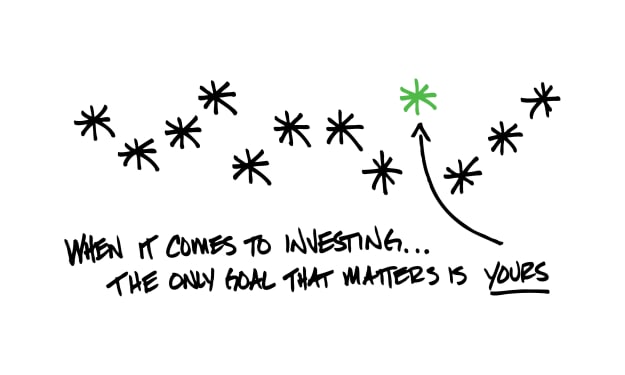Becoming a Cash Flow Pro
How to Get Out of the Groundhog Day Cycle

Be honest. When you hear this question, what is the first answer that pops into your head?
“What would help you with your budget?”
Most people say, “If I made more money”
Sometimes I hear, “If I spent less,” sometimes...
Why is it so hard for those of us in the U.S. to manage money? We’re taught to work hard, get good grades, go to college, get a good job and there ya go.
Somehow, after that taxes increase and then there’s an increase in healthcare. Then the Stafford income based repayment plan finds out you’re making more money, and your favorite cheap bar starts charging more for drinks…
Back to square one.
Just look at the government. They can literally PRINT MONEY. And they can't figure out a budget … SO answer number one is kaput.
Maybe we should just spend less, right? It’s hard to back down though.
Rent or mortgage is pretty fixed, car payments, insurance, student loans, daycare, cable and/or internet, mobile plan, electricity, gas, water, trash, HOA fees, gas, public transportation, and the list goes on, and on and on.
I didn’t even mention FOOD! Does that happen when you try to budget!? Maybe you can afford to live on what they give you on the airplane for food. Yeah, nope.
Let’s try to get a different perspective on our cashflow conundrums.
We're coming up on Groundhog Day. It's the time of year that we believe that if a groundhog sees its shadow on the chosen date (Feb 2, 2019) then there will be six more weeks of winter. If the groundhog doesn't see its shadow, then "Spring is right around the corner!"
What the heck does this have to do with money!?
Have you ever felt like it's always Groundhog Day with your money? That it will always be six more weeks of winter when it comes to your cash-flow? Most people do.
One of my favorite movies ever is Groundhog Day with Bill Murray. The main character, Phil, finds himself stuck in a cosmic cycle, repeating the same day over and over. (If you've heard of the modern movie Death Day, it's kind of like that.)
When it comes to money, I've found that most people live this sort of Groundhog Day cycle. It's always winter and it always repeats.
I've got some tips to help you become a cashflow pro and to create a cycle of satisfaction and fulfillment in your life!
1. Consider adjusting your tax withholdings!
It's like my own Groundhog Day. I hear this from new clients every month. It happens so often that I'm not even surprised anymore…
Client: "It's too hard to save"
Me: "Let's look at your paystub. It looks like you're paying a ton in taxes, do you usually get a refund?"
"Oh yeah, we just filed! We're getting $4,800 back this year! We're going to use it to pay down our credit cards a bit"
"Did you do the same thing last year?"
"Yup, like every year I've ever paid taxes…"
"What if you had an extra $300-$400 per month in cash-flow?
"That would be amazing! I probably wouldn't have so many credit card bills."
"Great, but you wouldn't get a refund, is that ok?"
"What if I owe taxes!?"
"You pay the taxes, with the savings … at zero percent interest if you file and pay on time instead of the 18 percent credit card payments…"
{SHOOKETH} (GRABS heart, makes strange squeaking noise)
"Make sure you work with your accountant or CPA, but I think this could really help your plan instead of just getting the "bonus" every tax season. All they are doing is sending back your money.
{Still Shook} (Slight smile forms, little baby tears in the corner of their eyes)
Check out this calculator from the IRS.
The less withholding allowances you claim, the more you ALLOW THEM TO TAKE out. "Them" is the taxing authority of your state and country—just so we’re clear. The more you claim, the closer you should be to right on for what you owe.
Word of caution: Be sure to work with a CPA or accounting firm if you have an interesting situation like consulting income or multiple sources of revenue. This can get tricky. Essentially though, imagine if you had another $100, $200, $300 per month to go towards your cashflow instead of a $100, $2000, $3000 refund at tax time.
2. Double check your healthcare plan and premiums.
If you're fairly healthy and don't need regular doctor visits, you may be able to adjust your health care plan to a high-deductible plan with lower monthly premiums. You would need to pay a higher deductible if you need a hospital visit, but you would have lower monthly premiums in the meantime. With a high deductible plan you can save money into an H.S.A (Health Savings Account) that can be used tax free for health care expenses! It’s a great option for those without a lot of needed ongoing medical attention.
I've even seen a married couple each paying for health coverage at their employer and paying for coverage on the other spouse! Be sure to get on the same page so you're not wasting any money!
3. Direct deposit your check.
There are still a significant amount of employees getting checks that they need to cash each month. Sometimes the bank may charge a fee, or even worse a check cashing business will charge up to ten percent! It's a rough way to lose out on money that could have been instantly deposited.
If you don’t have direct deposit, then I strongly urge you to get that bank account set up!
Your employer likes direct deposit. It’s cheaper for their payroll to run direct deposit rather than print and cut checks. You will save money not cashing checks anymore and save time not going to those venues.
Some of you may already have direct deposit. Do you have your deposit going into ONE account? I want to challenge you to go back to your employer to set up direct deposit into another account.
You can have some money deposited into a spending account, and the rest into bills. Or some clients will have 3 direct deposits, and one of them is more of a savings account. Check out my blog post on the flex/flow system that I’ve created!
By separating the funds automatically, we feel more obligated to stick to our three little mini-budgets.
I’ve learned now. It’s best to just split up the check before you even touch it.
I know there are a lot of unbanked people out there that don't have a choice to bank because of certain reasons, but this call-out is specifically for people that could open a bank account and get direct deposit.
4. Average your monthly utility bills.
This one is huge for places that have large temperature variances. For example, here in MN we are expecting -27 degree temperature this week! We use natural gas to heat our home, so our bill this month will be much higher than in July. However, in July, our electricity bill will be higher because of our air conditioning during our 90+ degree temps.
What I've learned is that you can call your utility companies and ask for a monthly average plan! Instead of one month at $52, and another month going up to $152, you can pay $75 every month.
You may need to make some adjustments at the beginning of the next year, but it's a great way to add some consistency to your cash-flow.
Good luck adjusting your cash-flow this year! I hope that we can shed some light on ways to improve your monthly budget. However, I'm totally throwing all the shade with this post. I don't want you to see your shadow, you're ready for some spring when it comes to your monthly cash-flow. Get out of that Groundhog Day cycle.
About the Creator
Isaiah Goodman
Isaiah is a Certified Financial Education Professional TM and a dynamic speaker who loves to empower others. Isaiah has been married to his wife since 2012. At home they are joined by their four children and dog.






Comments
There are no comments for this story
Be the first to respond and start the conversation.